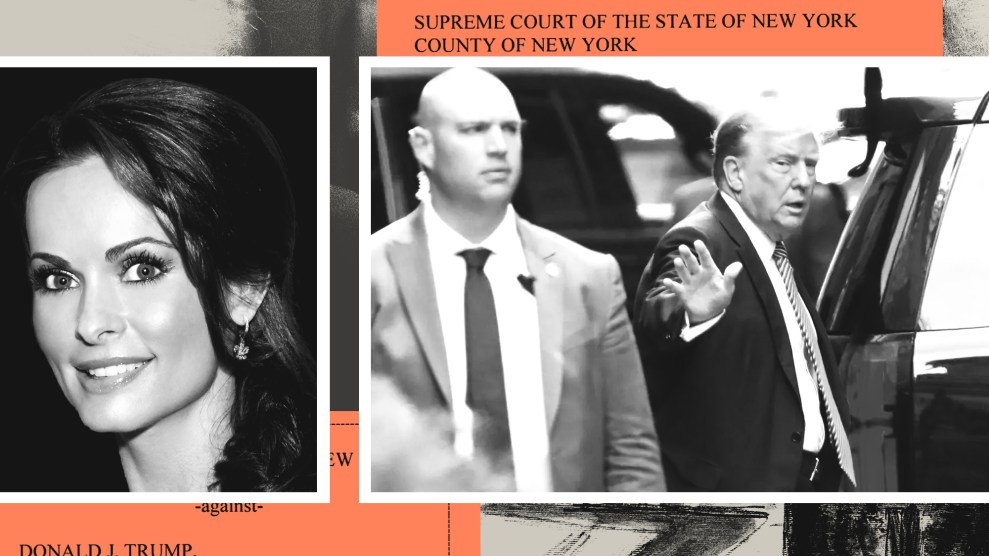The Washington Post has a big story today about the FCC’s proposed auction of broadcast spectrum formerly used for UHF televison stations and freed up when we made the switch to digital TV a few years ago. The chunk of bandwidth in question is known as the 600 MHz spectrum, because it mostly spans the region from 600-700 MHz.
This auction is a bit of an odd duck because it’s actually two auctions in one. In the first, or “reverse” auction, TV broadcasters around the country will be asked to voluntarily give up the 600 MHz spectrum currently allocated for their use. In order to encourage this voluntary participation, they’re being promised a share of the proceeds from the second auction, which is where cell phone companies will bid to buy chunks of the 600 MHz spectrum.
This is, needless to say, a bit more complex than your standard spectrum auction, and it’s likely that some broadcasters will participate and some won’t. This means that particular chunks of the spectrum will be available for sale in some cities but not others, so wireless companies will almost certainly find themselves bidding on, say, one 5 MHz chunk of space in New York, a different chunk in Boston, etc. Not only is this messy, but a lot of advocacy groups are unhappy that TV stations are being allowed to benefit from an auction of what are, after all, public airwaves.
But Republicans are also unhappy about something: guard bands. These are empty chunks of spectrum that prevent interference between different uses. The FCC has proposed two guard bands of 6 MHz each that would protect wireless spectrum from adjoining TV spectrum. The diagram below shows how this works. Note that the sizes of the two chunks of spectrum being auctioned (in pink) are referred to merely as X and Y because their actual size won’t be known until after the reverse auction is completed.

In theory, the controversy over this is that, technically speaking, it’s not clear if these guard bands are actually necessary—or if they need to be so big. There’s a good case to be made that 1 MHz would be plenty, which would free up two more chunks of bandwidth that could be auctioned off.
On the surface, then, the argument is between technical requirements vs. a desire for maximum revenue. But that’s not what anyone really cares about. The real argument is between FCC chairman Julius Genachowski and Silicon Valley, on one side, who want to leave these guard bands unlicensed so that local communities can create “super Wi-Fi” networks, vs. wireless carriers, on the other side, who very decidedly don’t want to compete with a bunch of municipal bandwidth that could be used to surf the web and make internet phone calls free of charge. Democrats are mostly siding with Silicon Valley, while Republicans are siding with the wireless carriers. Here’s the Post:
The airwaves that FCC officials want to hand over to the public would be much more powerful than existing WiFi networks that have become common in households. They could penetrate thick concrete walls and travel over hills and around trees. If all goes as planned, free access to the Web would be available in just about every metropolitan area and in many rural areas….The free networks would still take several years to set up. And, with no one actively managing them, connections could easily become jammed in major cities. But public WiFi could allow many consumers to make free calls from their mobile phones via the Internet. The frugal-minded could even use the service in their homes, allowing them to cut off expensive Internet bills.
….Cities support the idea because the networks would lower costs for schools and businesses or help vacationers easily find tourist spots. Consumer advocates note the benefits to the poor, who often cannot afford high cellphone and Internet bills.
….Some Republican lawmakers have criticized Genachowski for his idea of creating free WiFi networks, noting that an auction of the airwaves would raise billions for the U.S. Treasury. That sentiment echoes arguments made by companies such as AT&T, T-Mobile, Verizon Wireless, Intel and Qualcomm, in a letter to the FCC staff late last month, that the government should focus its attention on selling the airwaves to businesses.
So that’s what this is all about. My quick take on the technical argument—definitely subject to revision if I learn more—is that the guard bands probably don’t really need to be so big. At the same time, a one-time payoff of a few billion dollars is hardly important to the federal government’s finances, either. The real argument here is about whether a significant chunk of prime spectrum should be left free for public use.
The truth is that this probably wouldn’t create serious competition for wireless carriers and wouldn’t hurt their business much. It’s too small, too local, and too unreliable for anyone who needs serious cell phone service. At the same time, it sure would be useful to have large-scale Wi-Fi networks available throughout the country for casual use. The rollout might be messy, but count me as a supporter anyway. If Republicans want to take the anti-public side of this debate, they’re welcome to it.

















